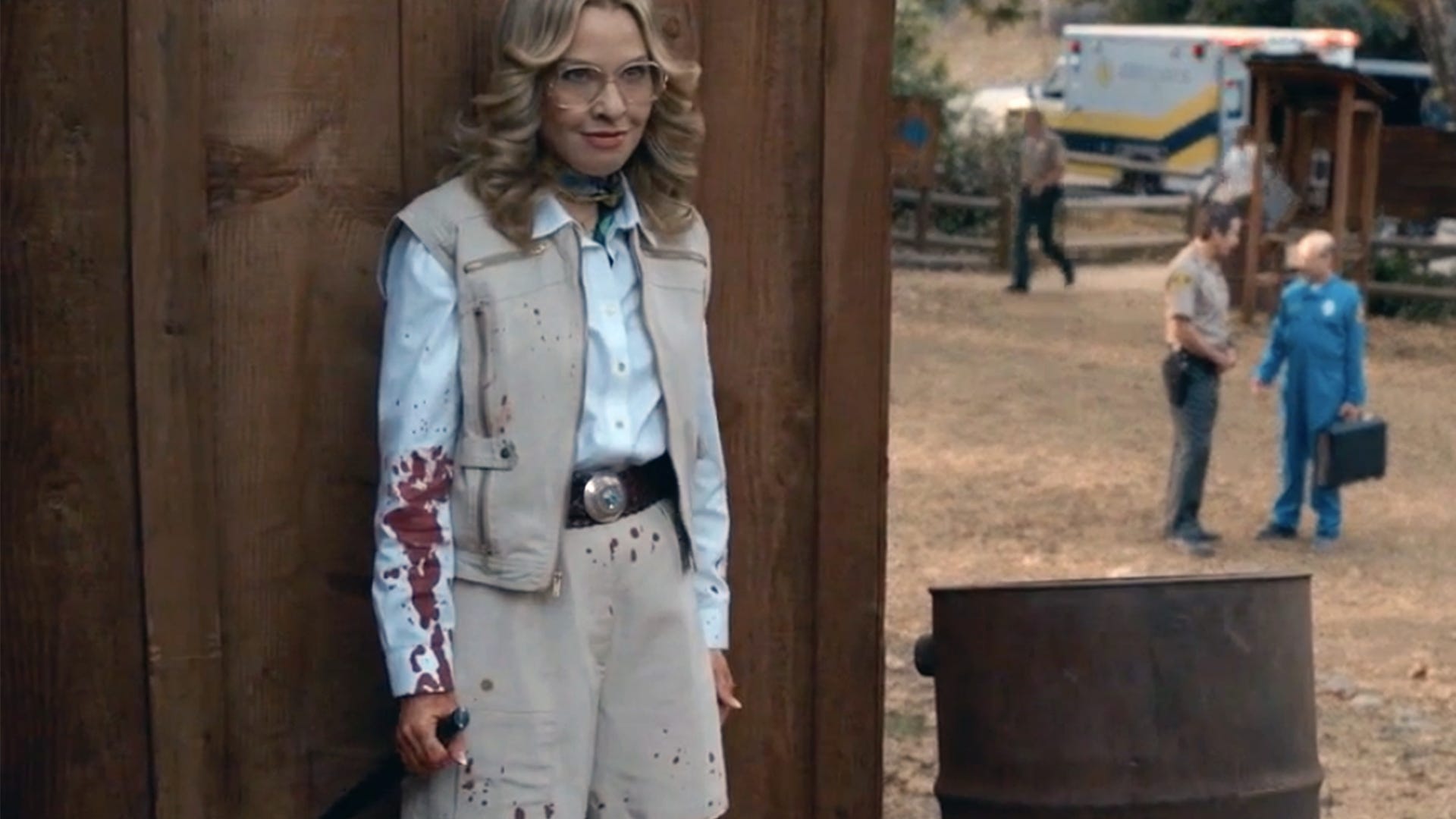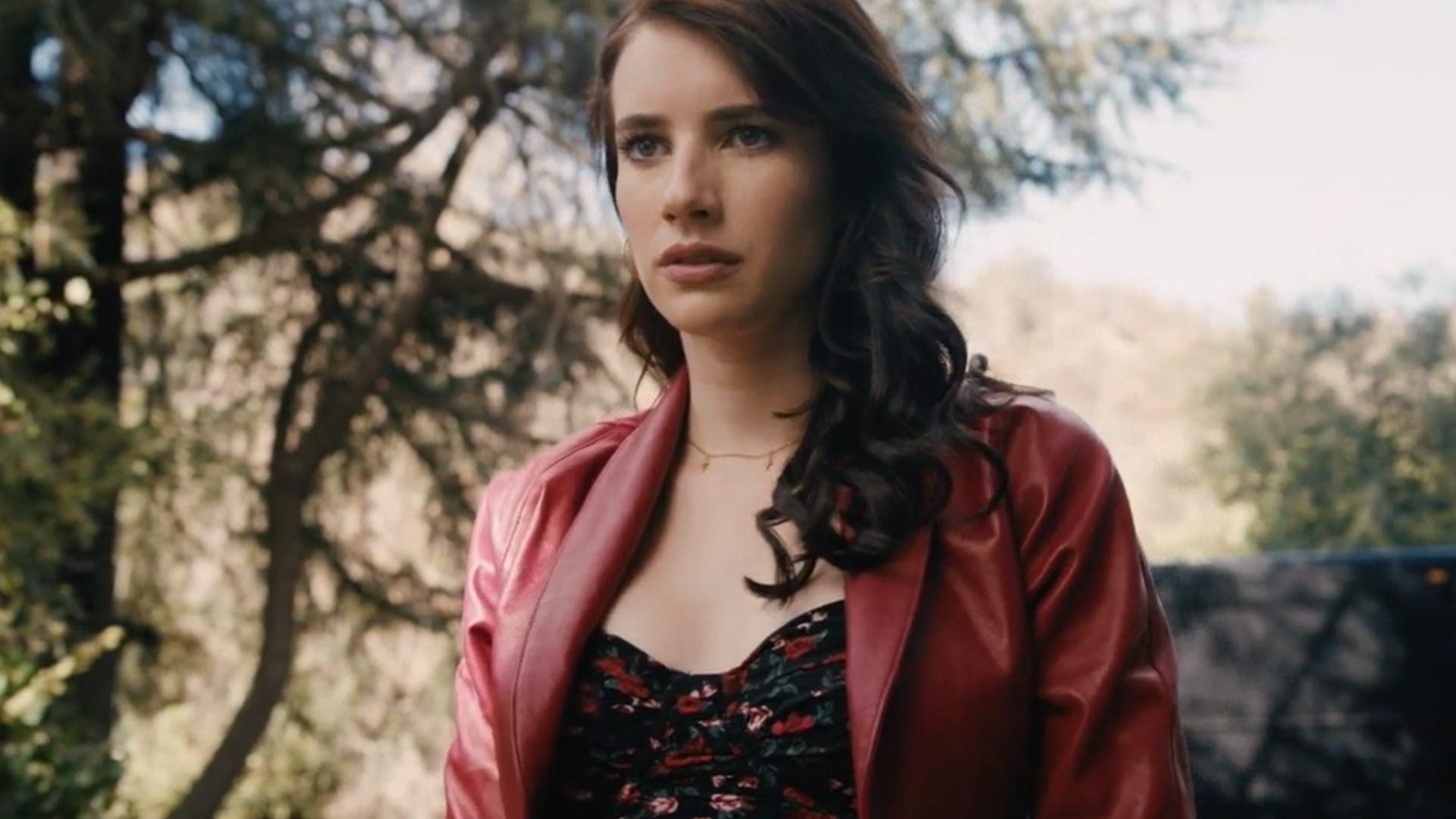Join or Sign In
Sign in to customize your TV listings
By joining TV Guide, you agree to our Terms of Use and acknowledge the data practices in our Privacy Policy.
American Horror Story: 1984 Was Good, But Lacked What Typically Makes AHS Great
It was a great homage to '80s slasher movies -- but is that enough?
When FX announced that the ninth season ofAmerican Horror Story, 1984, would be a take on a 1980s slasher movies, fans immediately began theorizing as to what game-changing twist creator Ryan Murphy had in store to take this theme to the next level. The title, which is the same as George Orwell's famed novel, led many fans to assume that 1984 would actually be about government (or even alien) surveillance. Others predicted it would all be revealed to be part of a simulation or time loop. But all these (incredibly detailed) theories ultimately proved pointless since -- for once -- the season was exactly what it said it would be: an homage to 1980s slasher movies. Nothing more and nothing less. But is that really enough?
Over the years, American Horror Story fans have been conditioned to expect the most outlandish reveals and disturbing twists, teaching us never to take anything at face value. Because while Murder House was a play on a traditional haunted house story, it also featured the birth of the literal Antichrist! Asylum was about the horrors of cruelly run institutions, but was also about the Devil, aliens, and serial killers who make lamps out of human skin! 1984, on the other hand, was about slasher movies, the '80s, and that's pretty much it.

That doesn't mean that the season wasn't a lot of fun. The nostalgia-seeped setting provided the perfect setup for AHS's signature one-liners and pop culture references, and 1984 delivered when it came to embracing the most iconic aspects of slasher films (ex: red herrings, over-the-top deaths, frustratingly bone-headed decisions). There were even a few twists we genuinely didn't see coming, such as Donna (Angelica Ross) being the one to free Mr. Jingles (John Carroll Lynch) or Montana (Billie Lourd) dating The Night Stalker (Zach Villa). But overall, 1984 just felt safe. The last thing we expected from American Horror Story was such a straightforward homage to '80s slashers, rather than an attempt to take this concept and transform it into something new -- particularly when so many opportunities were right there. Adding in an Orwellian influence would not have only put a new spin on the slasher story, but it also could have helped provide the season a more modern sensibility, as conversations about surveillance in the digital age and the way this information is being used become even more relevant leading up to the 2020 presidential election. Instead, all we got was ghosts... again.
American Horror Story: 1984 Recap: A Bloody but Surprisingly Happy Ending
The best slashers have an underlying theme, a trauma that the film is helping viewers work through in a safe space, like Halloween's critique of American social values (particularly relating to premarital sex) or A Nightmare on Elm Street's exploration of the horrors of adolescence or inherited sins. The same can be said about previous seasons of American Horror Story. Murder House, Asylum, and Coven -- the holy trinity of the AHS universe -- were so successful and remain so rewatchable years later precisely because each season honed in on its characters' traumas, finding unexpected ways to illustrate them and force the characters to confront them.
While 1984 was ostensibly about whether you could escape your past and who (if anyone) can be granted redemption, the exploration of these questions felt rushed and half-baked, sprinkled throughout an overstuffed ensemble rather than providing a true narrative lead for the viewers to hook into. Brooke (Emma Roberts) was clearly positioned as the season's "final girl" from the beginning, but by the end of the season many were indifferent about whether or not she'd survive. That's because Brooke's flimsy backstory (her fiancé killed himself and her dad on their wedding day, convinced she had cheated on him) was never really used to teach us anything deep about this allegedly interesting young woman. By the time Brooke gave her big speech in 1984's finale, a moment that should have signaled a massive triumph over her trauma, it felt more like an attempt to justify the plot than a hero's final bow, since we never got to know Brooke very much beneath her good-girl-gone-slightly-bad surface.

Though Brooke did survive the season, it was the happy endings of Mr. Jingles and Donna (the season's second final girl, in a nice twist) that packed the most emotional punch. This is due in part to the standout performances by Angelica Ross and John Carroll Lynch, but it's also because they were two of the only characters who were allowed to evolve beyond their slasher archetypes. Donna's fear of inheriting her father's evil and the things she was willing to do to find out the truth gave her texture, providing viewers with a reason to empathize with her despite all the bad things she did. Mr. Jingles' discovery that he wasn't a killer prior to Donna freeing him in 1984 -- and the guilt he carried over his younger brother's death -- turned him into a tragic figure you couldn't help but root for, despite the fact that he murdered several of the counselors. Had 1984 narrowed its narrative focus more to dive deep into Donna or Mr. Jingles' personal traumas, it could have elevated this season beyond just a fun series of references and tropes strung together into what was, yes, an entertaining season, but ultimately not a very memorable one.
100 Things We Still Can't Believe Happened on American Horror Story
American Horror Story has always, even in its most lackluster seasons, been able to key into universal fears or pains in interesting and entertaining ways. And without that aspect to provide the needed emotional weight, 1984 was left to rely on nostalgia and shock value. It succeeded masterfully when it came to the former, providing so many great moments for slasher fans or for those who are old enough to actually remember the '80s, but the shock value left audiences wanting more. Aside from a few genuinely scary and gruesome moments -- such as the terrible deal Bruce (Dylan McDermott) tried to strike with Brooke, or the ghosts feeding Margaret's (Leslie Grossman) dismembered limbs into a wood chipper -- 1984 was largely predictable. It was a well-made love letter to '80s slashers, and an entertaining way to spend nine hours, but it lacked that jaw-dropping, WTF-did-we-just-witness je ne sais quoi that makes American Horror Story typically such a thrill to watch.
1984 felt like it was stuck in the past rather than a fresh or boundary-pushing look at a complicated time in American history. And with the chance that Season 10 might be American Horror Story's last, we can only hope that Ryan Murphy remembers the roots of what made this series so great to begin with.
American Horror Story is available to stream on Netflix, Hulu, and Amazon.
